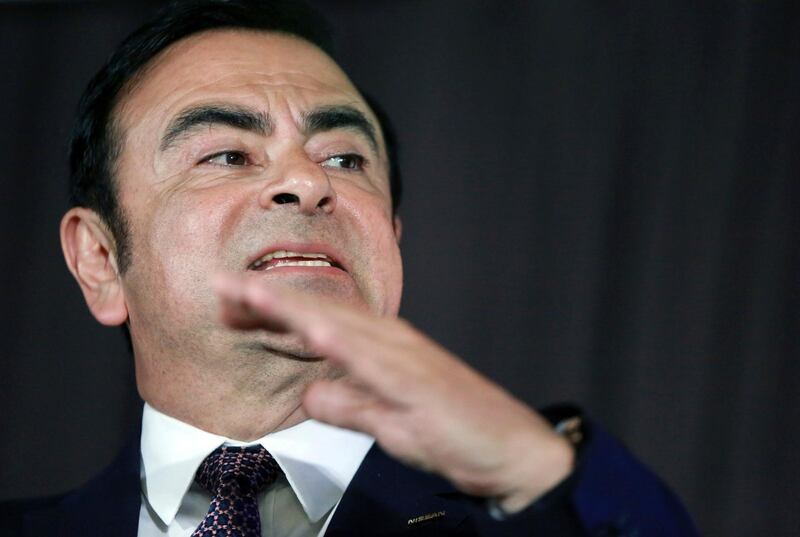A Tokyo court on Tuesday rejected ousted Nissan chairman Carlos Ghosn's appeal to end his detention following his arrest last month on allegations of financial misconduct.
Mr Ghosn has been held in a Tokyo jail since he was arrested on November 19 on suspicion of conspiring to understate his pay by about half of the actual $88 million awarded over five years from 2010. He was officially charged on Monday.
He was also re-arrested on new allegations of understating his income for three more years until March 2018, with the Tokyo District Court extending his detention until December 20.
Mr Ghosn's lawyers filed an appeal to overturn the detention midday Tuesday, but it was rejected by the court by evening.
From indictment, cases typically take months to go to trial. In the past, suspects who have been indicted have seldom been freed on bail, but in recent years that has become more common, said Masashi Akita, a defence lawyer.
It is unclear whether Mr Ghosn would be freed on bail as some legal experts have said he may be a flight risk, Reuters said.
Nissan, which fired Mr Ghosn as chairman days after his arrest, has said the misconduct was masterminded by the executive with the help of former representative director Greg Kelly, who was also indicted on Monday. Mr Kelly will also remain detained until December 20, the district court said.
Mr Ghosn's lawyer in Tokyo, Motonari Otsuru, could not be reached at his office for comment.
But Mr Kelly's lawyer, Yoichi Kitamura, said he was certain that his client's innocence would become clear in court.
_______________
Read more:
Nissan moves to block Ghosn access to Rio flat
Ghosn's arrest may spur global backlash against Japan
_______________
"The reason I'm confident is because there was no violation of the financial instruments and exchange law," he said.
Mr Ghosn's arrest marks a dramatic fall for a leader once hailed for rescuing Nissan from the brink of bankruptcy.
The executive has been treated like others in detention, held in a small, chilly room, with limited opportunities to shower and shave, a person familiar with the matter has said.
Asked about criticism that Japanese prosecutors often try to force confessions from suspects, deputy prosecutor at the Tokyo District Public Prosecutors Office, Shin Kukimoto, has said no such method was being used with Mr Ghosn and Mr Kelly.
While Nissan is hoping that the removal and incarceration of Mr Ghosn will not result in a backlash, the company is still dealing with fallout from recent technical problems with its vehicles. Last week Nissan announced plans to recall approximately 150,000 vehicles owing to improper tests on new units.
"Nissan has recently found several non-conformities that may have caused inaccurate pass/fail judgements during the inspection process," the company said, adding it would "promptly" recall as many as 150,000 units in Japan.
It confirmed that improper tests were carried out on brakes, speedometers and other systems before shipment at its domestic assembly plant.
The recall will cover 10 models including Note and Leaf electric vehicles as well as March and Cube compact cars produced between November 2017 and October this year.
The manufacturer was forced to recall more than one million vehicles last year after admitting staff without proper authorisation had conducted final inspections on some units intended for the domestic market before they were shipped to dealers, AFP said.
In a separate case that erupted in July, Nissan admitted data on exhaust emissions and fuel economy had been deliberately "altered", hampering its efforts to recover trust after the inspection scandal.






